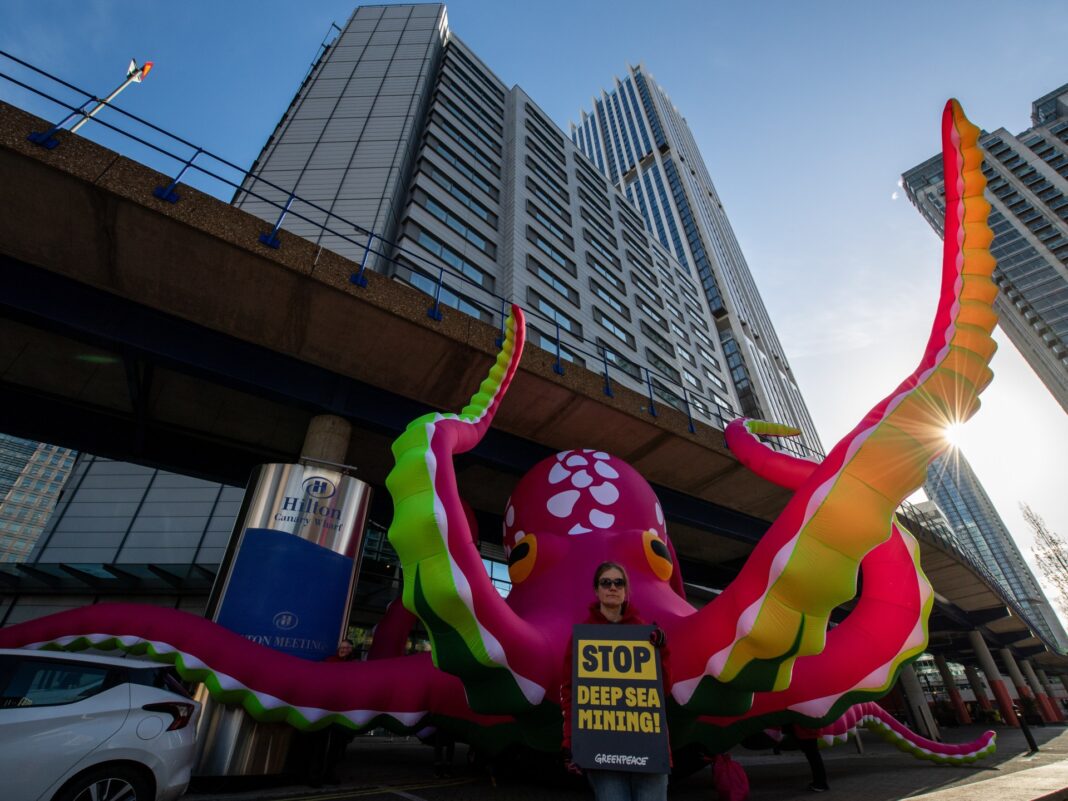With negotiations to adopt rules and regulations for commercial deep-sea mining in international waters resuming this week at the International Seabed Authority (ISA), African countries have an extremely important role to play in the future of this industry and the health of our ocean.
ISA, as a UN-affiliated institution, was established in the 1990s to ensure that developing countries would benefit financially from deep-sea mining when/if it starts, ensuring equity in the benefits derived from global commons. As this debate progresses, Africa stands at a pivotal moment where its decisions could profoundly influence the trajectory of this industry and the preservation of marine ecosystems.
Industry advocates claim there are millions of dollars to be made from minerals located in the deep sea. And through yet-to-be-decided financial and royalty mechanisms at the ISA, African countries could reap huge financial and economic benefits.
But our research, which looks at the full net cost of deep-sea mining for a wide variety of stakeholders, including mining companies, investors, low-income countries, sponsoring states, and nations involved in terrestrial mining, has uncovered a complex web of risks and rewards.
Mounting scientific evidence suggests that mining would have devastating impacts on fragile seafloor habitats. A single mining operation might discharge massive sediment plumes, significantly affecting light penetration and water oxygenation while dispersing toxins and radioactivity. The price of irreversible ecological damage could be staggering, estimated to potentially surpass the entire global defence budget of about 2 trillion dollars.
And while private companies (and the countries sponsoring their mining operations) stand to make short-term profits from the enterprise, looming business model risks, litigation threats, and technological challenges raise serious doubts about its long-term economic benefits. As new data continues to emerge, we must include the costs of potentially irreversible damage mining causes in our calculus, especially as humanity faces a triple planetary crisis of climate change, biodiversity loss, and pollution.
Moreover, new technologies, resource-efficient processes, circular economy models, and responsible mining practices could significantly reduce, or eventually eliminate, the need for deep-sea mining. We found that already-proven technology and measures could slash demand for the aforementioned minerals by some 58 percent.
Further complicating the landscape are possible clashes with land-based mining nations, where a sudden increase in supply could decrease market prices and erode profits. Such implications necessitate an equitable compensation mechanism, underscoring the broader responsibilities of regulatory bodies like the ISA in ensuring fairness and sustainability.
In light of the growing concerns about mining’s potential impact on fragile deep-sea ecosystems and the true costs of the operations, an international movement, supported by multiple high and low-income nations – such as Fiji, Mexico, Palau, Canada, Brazil and Sweden, among others – conservation organisations, financial entities, and business leaders, is calling for an immediate moratorium or precautionary pause on deep-sea mining until comprehensive scientific research can accurately assess the activity’s environmental impact and the risks to deep-sea ecosystems and broader ocean. Unfortunately, as of today, no African states support a moratorium or a precautionary pause.
For Africa, the implications of deep-sea mining are profound. Countries must weigh the questionable short-term economic gains against the potential long-term ecological damage. Ultimately, the minerals resting on the international seafloor belong to all of humanity as the common heritage of humankind and raise fundamental questions about our ethical responsibilities. The price to our planet and its ecosystems may very well far outweigh the short-term economic benefits, compelling us to safeguard the delicate balance of our oceans and nature.
The debate on deep-sea mining will persist, but as new data and perspectives emerge, African countries need to make their voice heard on this critical issue. The clock is ticking, and the decisions we make today will have a profound impact on the future of our planet and the wellbeing of generations yet to come.
The views expressed in this article are the author’s own and do not necessarily reflect Al Jazeera’s editorial stance.







